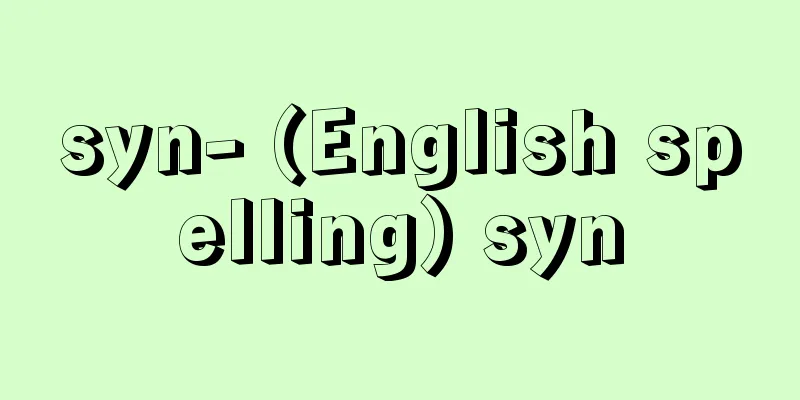Wole Soyinka

|
A playwright, poet, novelist and critic from Yoruba Land, Nigeria. After graduating from the University of Ibadan, he studied at the University of Leeds in England, where he was taught Shakespeare by Professor G. Wilson Knight, which opened his eyes to theater. He graduated from the university in 1957, and went to London in 1958 to train at the Royal Court Theatre. He returned to Nigeria in 1960, when his country gained independence. During this time, he became engrossed in the world of absurdist theater by S. Beckett and H. Pinter. After returning to Nigeria, he immediately formed the theater companies "1960 Masques" and "Orison Theatre", and while teaching at universities in Ife, Ibadan and Lagos, he worked on grand experimental theater that combined Western theater with African theater, sharply satirizing the gap between Africa's traditional lifestyle and the absurdity that came with rapid modernization. His plays include The Swamp Dwellers (1963), The Lion and the Jewels (1963), The Forest Dance (1963), inspired by Shakespeare's A Midsummer Night's Dream, centered on the Yoruba god Ogun, The Road (1973), Death and the King's Stable (1975), Opera Wonyosi (1981), an adaptation of Brecht's The Threepenny Opera, Requiem for the Futurologist (1985), and From Zia, with Love (1992).When the Nigerian Civil War broke out in 1967, he launched a campaign criticizing the federal Gowon administration from the standpoint of anti-war humanism, and was imprisoned for two years from 1967. From his wartime experiences, he published a tetralogy of poems, The Lying Bird in the Basement (1972), the play Madmen and Specialists (1971), the novel A Season of Disasters (1973), and a memoir of his imprisonment, The Dead Man (1972), in which he explored "human irrationality in abnormal situations." After his release, he went into "self-exile" in England in 1972, and returned to Nigeria in 1976 after Gowon's downfall. After graduating from the University of Ibadan, he became professor of the Department of Drama at the University of Ife, where he worked to revitalize the Nigerian theater scene and nurtured successors such as Femi Osofisan (1946- ). Even after leaving the university in 1984, he continued to make notable political statements condemning political corruption and apartheid in his home country. In 1994, he went into exile in London, criticizing the Abacha military regime, and returned to Nigeria in 1998 after Abacha's death. His other works include the poetry collections "Idanre and Others" (1967), "Ogun Abibiman" (1976), "Mandela's Land" (1989), and "Beautifying the Local Boys" (1995), the novel "The Interpreters" (1965), the autobiographies "Ake" (1981), "Isara" (1989), and "Around Ibadan" (1994), collections of essays "Myth, Literature, and the African World" (1976), "Art, Dialogue, and Violence" (1988), and "The Open Wounds of the Continent" (1996), and a collection of lectures "The Burden of Memory" (1999). He was awarded the Nobel Prize in Literature in 1986. He visited Japan the following year, in 1987 (Showa 62). [Tetsu Tsuchiya] [References] | | | | |Source: Shogakukan Encyclopedia Nipponica About Encyclopedia Nipponica Information | Legend |
|
ナイジェリア、ヨルバ・ランド出身の劇作家、詩人、小説家、評論家。イバダン大学卒業後、イギリスのリーズ大学に留学し、教授のG・ウィルソン・ナイトからシェークスピア演劇の指導を受け、これが演劇に開眼するきっかけとなった。1957年に同大学を卒業し、58年にロンドンに出て、ロイヤル・コート・シアターで演劇の修業を積んだ。祖国の独立と同時に、1960年に帰国。この間、S・ベケットやH・ピンターの不条理演劇の世界にものめり込んでいった。帰国後、ただちに劇団「1960・マスクス」および「オリスン座」を結成し、イフェ、イバダン、ラゴスの各大学で教えながら、西洋演劇とアフリカ演劇との融合という壮大な実験演劇に取り組み、急激な近代化に伴う、アフリカの伝統的な生活様式とのギャップ、その不条理を痛烈に諷刺(ふうし)した。そんな劇作品に『沼地の住人たち』(1963)、『ライオンと宝石』(1963)、ヨルバ神話の神オグンを軸に据えてシェークスピアの『真夏の夜の夢』にヒントを得た『森の舞踏』(1963)、『道路』(1973)、『死と王の馬丁』(1975)、ブレヒトの『三文オペラ』を脚色した『オペラ・ウォニヨシ』(1981)、『未来学者のための鎮魂歌』(1985)、『ズイアから、愛を込めて』(1992)がある。1967年にナイジェリア市民戦争(ナイジェリア戦争)が勃発(ぼっぱつ)すると、反戦ヒューマニズムの立場から、連邦政府ゴウォン政権を批判するキャンペーンを展開し、1967年から2年間投獄された。この戦争体験から、詩集『地下室に閉じ込められたウソの鳥』(1972)、戯曲『狂人とスペシャリストたち』(1971)、小説『異変の季節』(1973)、獄中体験記『死んだ男』(1972)の四部作を出版し、「異常事態における人間の非合理性」を追求した。釈放後の1972年にイギリスに「自己追放」し、ゴウォン失脚後の1976年に帰国した。イバダン大学を経てイフェ大学演劇科主任教授となり、ナイジェリア演劇界の活性化に尽くし、F・オショフィーサンFemi Osofisan(1946― )らの後継者を育てた。1984年に同大学を辞した後も、祖国の政治腐敗やアパルトヘイトを非難する政治的発言が目だつ。1994年にアバチャ軍事政権を批判してロンドンに亡命し、1998年アバチャの死去後帰国した。 そのほかの作品に、詩集『イダンレその他』(1967)、『オグン・アビビマン』(1976)、『マンデラの大地』(1989)、『地域少年の美化』(1995)、小説に『通訳者たち』(1965)、自伝に『アケ』(1981)、『イサラ』(1989)、『イバダンの頃(ころ)』(1994)、評論集に『神話・文学・アフリカ世界』(1976)、『芸術・対話・暴力』(1988)、『大陸の開いた傷口』(1996)、講演集に『記憶の重荷』(1999)などがある。1986年にノーベル文学賞を受賞した。その翌年の87年(昭和62)に来日している。 [土屋 哲] [参照項目] | | | | |出典 小学館 日本大百科全書(ニッポニカ)日本大百科全書(ニッポニカ)について 情報 | 凡例 |
Recommend
Sapucaia nut (English spelling) sapucaianut
...The seeds of several species of the Lecythis g...
Parasitic wasp (bee) - Parasitic wasp
…It is also called a parasitic wasp or a parasiti...
Sairyu-ji Temple
A nunnery located in Nara City at the request of E...
Qi Jiguang
A famous general who fought against the Japanese ...
Slum - slum (English spelling)
It is one of the regional pathological phenomena ...
Akasaka Marble
〘Noun〙 Marble produced at Mt. Kanebu in Ogaki City...
Magoichi Saika
At the end of the Sengoku period, he was a local l...
Ulmus glabra (English spelling) Ulmus glabra
… [Toshio Hamatani]. … *Some of the terminology t...
Independence - Dokuritsu
〘Noun〙 ("Ritsu" is the idiomatic pronunc...
Aerodynamics
A branch of fluid mechanics that studies the flow...
Ruiyou peony - Ruiyou peony
Its leaves resemble those of the peony, hence the ...
Addition formula - kahokoushiki
...Formula (III) expresses tan( x + y ) as a func...
Gobineau - Joseph-Arthur de Gobineau
French diplomat and author. After spending a doze...
Arab national movement
During World War II, plans for national unificati...
Rhombozoa
...However, some scholars believe that it is a de...







![Negros [island] - Negros](/upload/images/67cc758cbee6d.webp)

